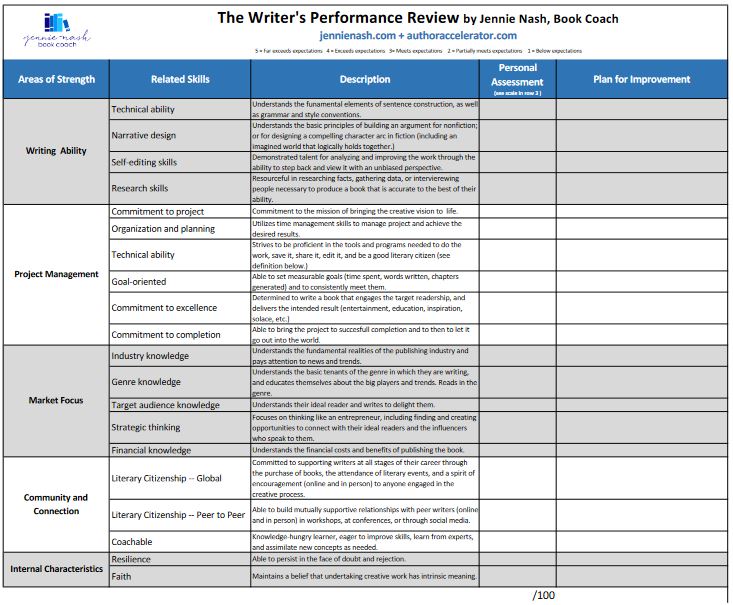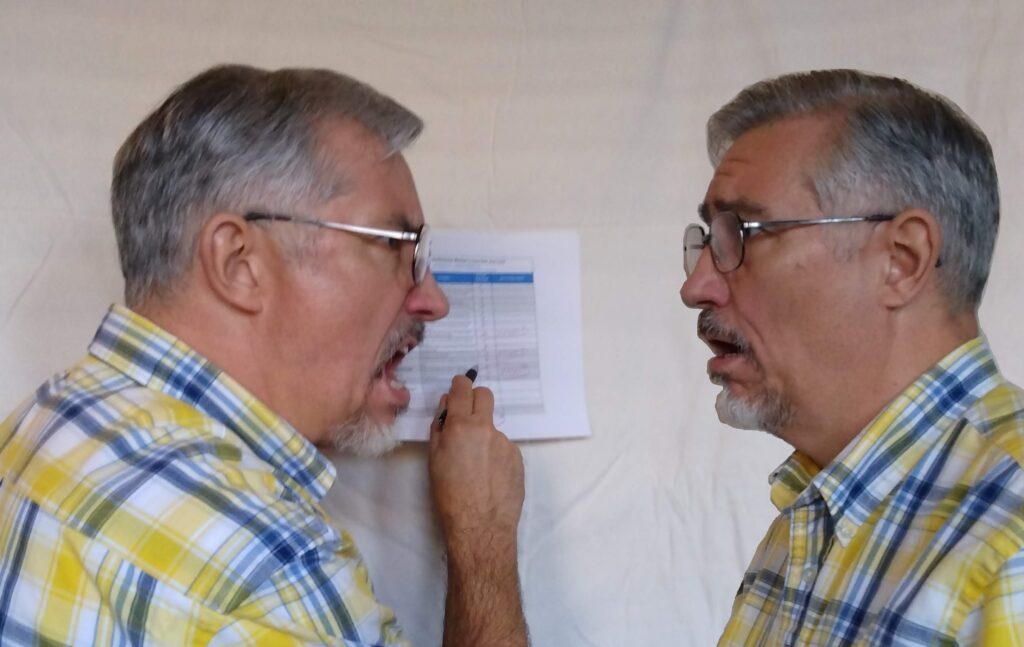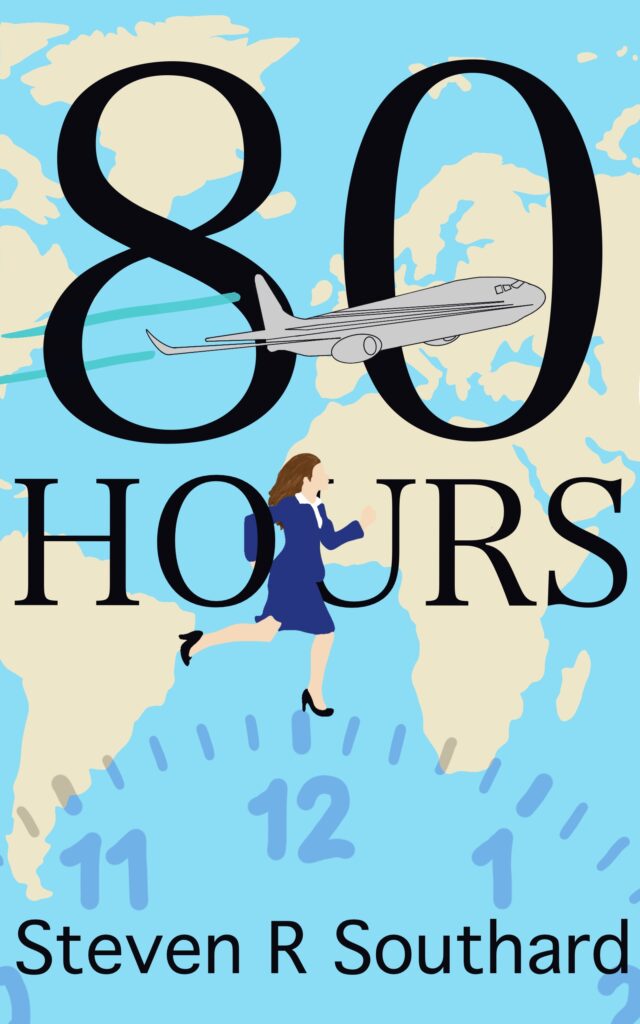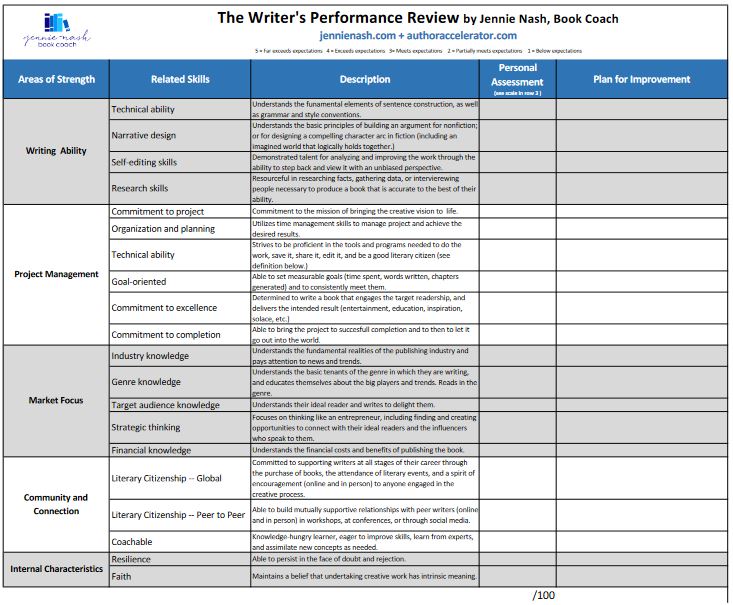As the end of the year approaches, this seems a good time to assess writing performance. As with last year, I’m using the Writer’s Performance Review template created by the Book Coach, Jennie Nash.

I scored a bit higher this year than last—a 75 out of a possible 100. Worst scores—goal orientation and strategic thinking. In last year’s assessment I scored low in these two as well, but my score improved in industry knowledge.
Goal orientation means more than writing down a to-do list, which I do. It means assigning numeric, measurable goals for time spent, word count, etc. Although I understand the importance of such metrics, I worry about the dangers of overemphasis. I’ve found I get more of what I measure and less of what I don’t. If that’s true for you, take care in what you choose to measure.
This performance review template defines strategic thinking to include identifying and connecting with ‘ideal readers’ and their influencers. I’ll do more research into this.
This year saw some personal writing successes. My short story “80 Hours” came out in paperback and ebook form. A book I co-edited, Extraordinary Visions: Stories Inspired by Jules Verne, got published. I served as president of my local writing critique group, and got a short story accepted for publication in an upcoming anthology.
Performance assessments bring anxiety, embarrassment, and self-doubt. Now imagine making your assessments public, as I do in these annual posts. You get to see a writer striving to improve, agonizing over failures, and dusting himself off, determined to make next year better.
If my struggles do no more than to inspire you to improve your own writing, then my self-examinations serve a greater purpose than mere assessments of—
Poseidon’s Scribe





